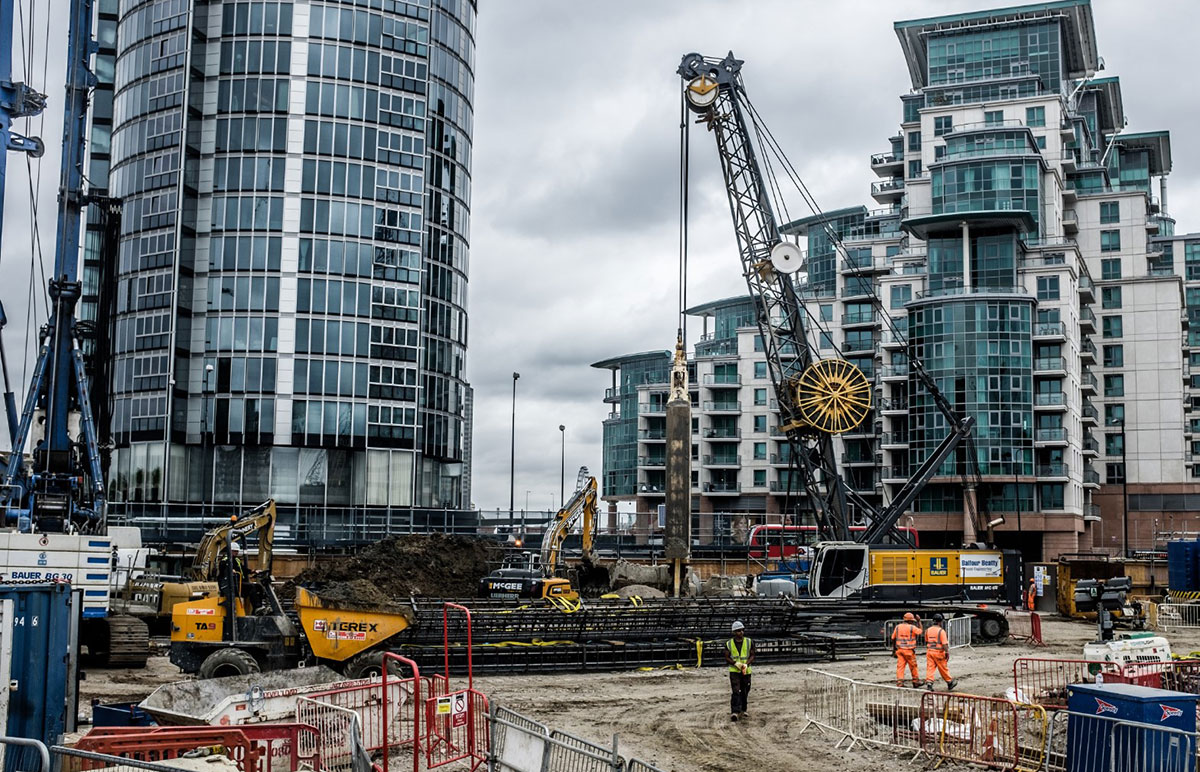7 Easy Facts About Geotheta Described
7 Easy Facts About Geotheta Described
Blog Article
Indicators on Geotheta You Need To Know
Table of ContentsGeotheta Fundamentals ExplainedThe Facts About Geotheta RevealedAll About GeothetaEverything about GeothetaGeotheta Things To Know Before You Buy

They perform site investigations, accumulate examples, carry out research laboratory examinations, and evaluate data to examine the viability of the ground for construction jobs - Consulting Engineer. Based on their findings, geotechnical designers supply suggestions for structure design, slope stability, retaining structures, and reduction of geotechnical threats. They collaborate with other specialists, such as architects, structural engineers, and building teams, to guarantee that geotechnical considerations are integrated into the general task layout and execution
By assessing the behavior and properties of dirt and rock, they can identify potential geotechnical dangers such as landslides, dirt settlement, or incline instability. Their know-how assists stop failings or mishaps that could threaten lives and property. Below are some thorough obligations and duties of a geotechnical designer: Site Investigation: Geotechnical designers conduct website examinations to collect data on subsurface problems.
They interpret the information to comprehend the properties and habits of the dirt and rock, including their strength, permeability, compaction features, and groundwater problems. Geotechnical Analysis and Layout: Geotechnical designers examine the information accumulated throughout site examinations to examine the stability and suitability of the site for construction tasks. They perform geotechnical computations and modeling to review variables such as birthing ability, negotiation, slope stability, side planet pressures, and groundwater flow.
Getting My Geotheta To Work
Structure Style: Geotechnical engineers play a crucial duty in creating foundations that can securely support the desired structure. They assess the dirt conditions and lots requirements to establish the proper foundation kind, such as shallow structures (e.g., grounds), deep foundations (e.g (https://www.easel.ly/browserEasel/14498559)., heaps), or specialized methods like dirt renovation. They take into consideration variables such as settlement restrictions, bearing ability, and soil-structure communication to establish optimum foundation styles
They evaluate construction plans, display site tasks, and conduct field inspections to validate that the style suggestions are followed. If unpredicted geotechnical concerns emerge, they examine the circumstance and provide referrals for remediation or modifications to the layout. Threat Evaluation and Reduction: Geotechnical engineers assess geotechnical dangers and risks linked with the job site, such as landslides, liquefaction, or soil erosion.

Collaboration and Interaction: Geotechnical designers work very closely with other specialists included in a task, such as architects, architectural engineers, and construction groups. Effective interaction and partnership are necessary to incorporate geotechnical factors to consider into the overall task style and construction procedure. Geotechnical designers offer technical competence, answer inquiries, and ensure that geotechnical needs are met.
About Geotheta
Here are some sorts of geotechnical designers: Foundation Engineer: Foundation designers focus on designing and examining structures for frameworks. They evaluate the soil problems, load requirements, and site attributes to determine the most suitable foundation type and style, such as shallow foundations, deep foundations, or specialized techniques like stack foundations.
They assess the elements influencing slope stability, such as dirt homes, groundwater conditions, and slope geometry, and establish methods to avoid incline failings and mitigate risks. Earthquake Engineer: Earthquake engineers specialize in evaluating and creating structures to stand up to seismic forces. They examine the seismic danger of a website, examine soil liquefaction possibility, and establish seismic layout requirements to ensure the security and strength of frameworks throughout quakes.
They perform field testing, collect examples, and examine the accumulated information to identify the soil buildings, geologic developments, and groundwater problems at a site. Geotechnical Instrumentation Engineer: Geotechnical instrumentation designers focus on monitoring and gauging the actions of soil, rock, and structures. They mount and preserve instrumentation systems that keep track of factors such as soil settlement, groundwater degrees, incline movements, and architectural variations to evaluate efficiency and offer early cautions of potential concerns.
The 30-Second Trick For Geotheta
They carry out examinations such as triaxial tests, combination examinations, straight shear tests, and leaks in the structure examinations to gather data for click for more info geotechnical evaluation and layout. Geosynthetics Engineer: Geosynthetics engineers concentrate on the design and application of geosynthetic materials, such as geotextiles, geogrids, and geomembranes. They make use of these products to improve soil security, reinforce inclines, provide drain solutions, and control erosion.
They often tend to be investigative individuals, which indicates they're intellectual, introspective, and analytical. They are interested, methodical, reasonable, logical, and logical. A few of them are likewise social, meaning they're kind, generous, participating, patient, caring, handy, understanding, sensible, and pleasant. Does this audio like you? Take our totally free occupation examination to learn if geotechnical designer is one of your leading job suits.
In the workplace atmosphere, geotechnical engineers utilize specialized software devices to do estimations, create designs, and assess information. They prepare reports, evaluation project specifications, communicate with customers and employee, and coordinate job activities. The office setup offers a conducive setting for research, analysis, and cooperation with various other professionals associated with the job.
Top Guidelines Of Geotheta
They often visit job websites to conduct website investigations, assess geotechnical problems, and gather information for evaluation. These sees involve taking a trip to various locations, often in remote or challenging terrains. Geotechnical designers may do soil sampling, conduct examinations, and display building tasks to ensure that the geotechnical elements of the task are being executed properly.
Geotechnical designers additionally function in specialized geotechnical research laboratories. Geotechnical research laboratory engineers function thoroughly in these atmospheres, managing screening devices, running tools, and taping information.
Report this page